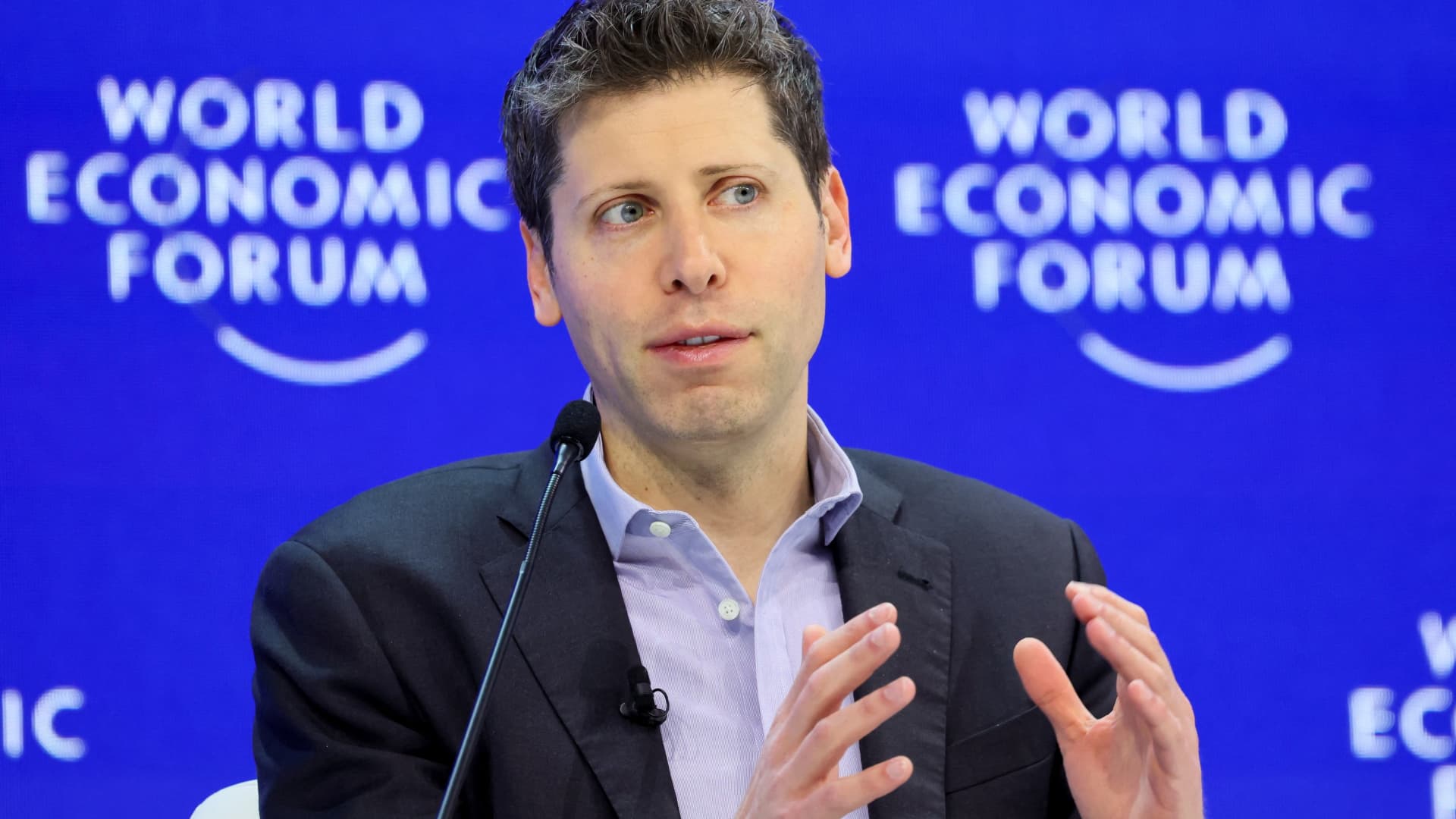On Friday, advanced nuclear fission company Oklo, for which Sam Altman serves as chairman, started trading on the New York Stock Exchange.
The company, which has yet to generate any revenue, went public through a special purpose acquisition company called AltC Acquisition Corp., founded and led by Altman.
Under the ticker symbol “OKLO,” shares were trading at just above $15 on Friday morning. Oklo was set to receive more than $306 million in gross proceeds upon closing the transaction, according to a release.
Oklo’s business model is based on commercializing nuclear fission, the reaction that fuels all nuclear power plants. Instead of conventional reactors, the company aims to use mini nuclear reactors housed in A-frame structures. Its goal is to sell the energy to end users such as the U.S. Air Force and big tech companies.
Oklo is currently working to build its first small-scale reactor in Idaho, which could eventually power the types of data centers that OpenAI and other artificial intelligence companies need to run their AI models and services.
Altman, co-founder and CEO of OpenAI, has said he sees nuclear energy as one of the best ways to solve the problem of growing demand for AI, and the energy that powers the technology, without relying on fossil fuels. Microsoft co-founder Bill Gates and Amazon founder Jeff Bezos have also invested in nuclear plants in recent years.
“I don’t see a way for us to get there without nuclear,” Altman told CNBC in 2021. “I mean, maybe we could get there just with solar and storage. But from my vantage point, I feel like this is the most likely and the best way to get there.”
In an interview with CNBC Thursday, Oklo CEO Jacob DeWitte confirmed the company has yet to generate revenue and has no nuclear plants deployed at the moment. He said the company is targeting 2027 for its first plant to come online.
Going the SPAC route is risky. So-called reverse mergers became popular in the low interest rate days of 2020 and 2021, when tech valuations were soaring and investors were looking for growth over profit. But the SPAC market collapsed in 2022 alongside rising rates, and hasn’t recovered.
AI-related companies, on the other hand, are the new darlings of Wall Street.
“SPACs haven’t exactly had the best performances in the past couple of years, so for us to have sort of the outcome that we’ve had here is obviously a function of the work we put in, but also what we’re building and also the fact that the market sees the opportunity sets here,” said DeWitte, who co-founded the company in 2013. “I think it’s very promising on multiple fronts for [the] nuclear, AI, data center push, as well as the energy transition piece.”
The company has seen its fair share of regulatory setbacks. In 2022, the U.S. Nuclear Regulatory Commission denied Oklo’s application for an Idaho reactor. The company has been working on a new application, which it isn’t aiming to submit to the NRC until early next year, DeWitte said, adding that it’s currently in the “pre-application engagement” stage with the commission.
Altman got involved with Oklo while he was president of startup incubator Y Combinator. Oklo went into the program in 2014, after an earlier meeting between Altman and DeWitte. In 2015, Altman invested in the company and became chairman.
It’s not his only foray into nuclear energy or other infrastructure that could power large-scale AI growth.
In 2021, Altman led a $500 million funding round in clean energy firm Helion, which is working to develop and commercialize nuclear fusion. Helion said in a blog post at the time that the capital would go toward its electricity demonstration generator, Polaris, “which we expect to demonstrate net electricity from fusion in 2024.”
Altman didn’t respond to a request for comment.
In recent years, Altman has also poured money into chip endeavors and investments that could help power the AI tools OpenAI builds.
Just before his brief ouster as OpenAI CEO in November, he was reportedly seeking billions of dollars for a chip venture codenamed “Tigris” to eventually compete with Nvidia. In 2018, Altman invested AI chip startup Rain Neuromorphics, based near OpenAI’s San Francisco headquarters. The next year OpenAI signed a letter of intent to spend $51 million on Rain’s chips. In December, the U.S. compelled a Saudi Aramco-backed venture capital firm to sell its shares in Rain.
DeWitte told CNBC that the data center represents “a pretty exciting opportunity.”
“What we’ve seen is there’s a lot of interest with AI, specifically,” he said. “AI compute needs are significant. It opens the door for a lot of different approaches in terms of how people think about designing and developing AI infrastructure.”

